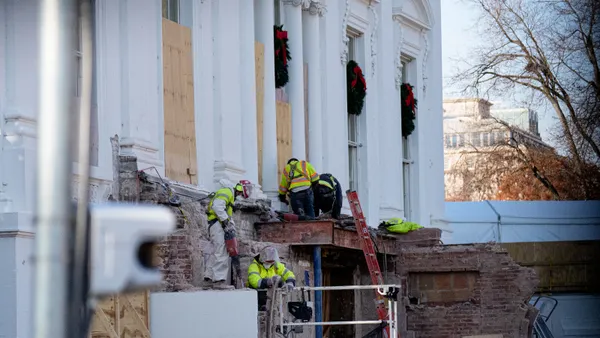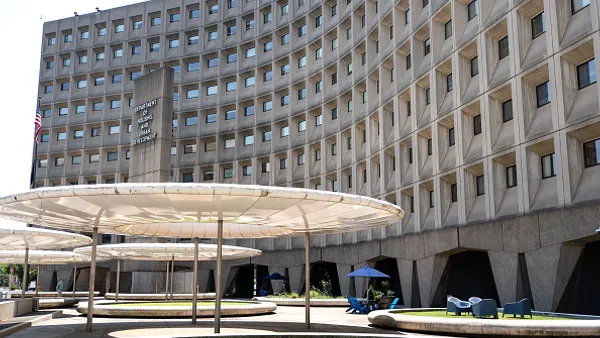Dive Brief:
- New York Gov. Andrew Cuomo has proposed a state-funded wage subsidy in an effort to resuscitate the expired 421-a tax credit and encourage real estate developers to build more affordable housing in New York City, according to The New York Times.
- The governor's plan would require developers to pay a minimum wage, which is dependent on how big the development is and where it is built. Developers would either pay $65 per hour or $50 an hour for labor, the latter rate tier subsidized by a 30% reimbursement from the state, and all would set aside 25%-30% of units at below-market rates.
- Cuomo's administration has not detailed how the state would pay for the wage initiative, but the governor's move would help him realize his $2 billion housing plan and make up for what some call a lackluster role in last year's failed 421-a negotiations, according to The Times.
Dive Insight:
The Real Estate Board of New York (also known as Rebny) and the Building and Construction Trades Council have been in "secret talks" about a wage subsidy for a few weeks, according to The Times. However, absent from the negotiations were representatives from the administration of New York City Mayor Bill de Blasio, whose original solution to the wage disagreement the governor's spokesperson called "unacceptable to the governor and the Legislature."
The 421-a tax credit first expired in June 2015 but was extended for four years as long as Rebny and the union could reach agreement on the wage issue by Jan. 15. Rebny and de Blasio's office pushed back against setting the wage at union prevailing rates, citing an Independent Budget Office report that determined such a requirement would increase the cost of the mayor's 80,000-unit affordable housing plan by $2.8 billion. Building Trades head Gary LaBarbera said the IBO used a flawed methodology to come up with those numbers. In January 2016, the credit officially expired.
LaBarbera told The Times that city unions are being more proactive in trying to compete with increasing nonunion labor forces. New York City has not been exempt from the trend toward cheaper, nonunion labor on private projects, and, as a result, large construction companies like Tishman Construction and Gilbane Building are rethinking the use of union labor. Gilbane caught flack earlier this year from New York City unions, who protested the contractor's use of nonunion labor at its job sites and city offices.
There is little doubt that a revived tax credit would spur affordable housing development. In fact, the New York Building Congress reported in May that New York issued 56,528 residential unit permits in 2015, a 180% increase from 2014, and NYBC President Richard Anderson said that bump was largely due to a rush in developer applications trying to beat the credit's Jan. 15 expiration.












